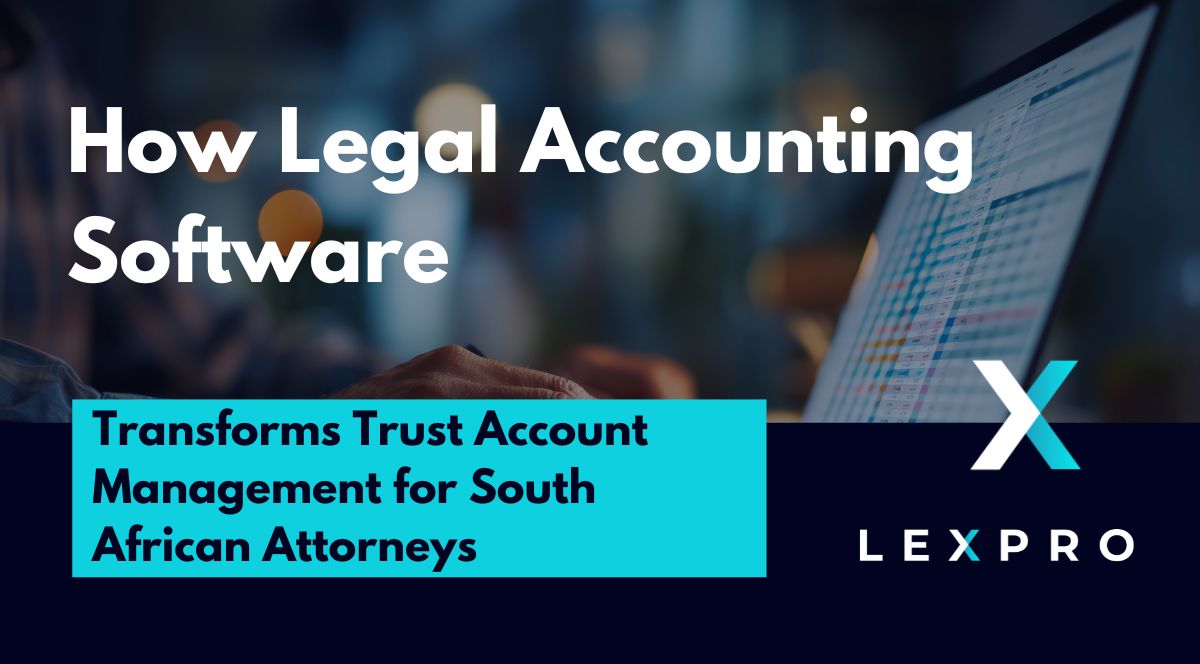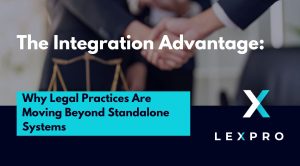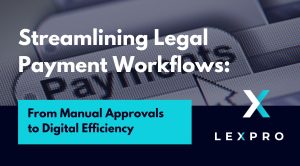Estimated reading time: 6 minutes
Key Takeaways |
|
• Section 86 investments require meticulous record-keeping with proper interest allocation between clients and the Legal Practitioners’ Fidelity Fund |
|
• Automated trust transfers eliminate manual errors that lead to regulatory violations and potential disciplinary action |
|
• Purpose-built legal accounting software reduces administrative time whilst ensuring adherence to Legal Practice Act requirements |
|
• Real-time tracking and automated reconciliation protect firms from trust account irregularities |
Introduction
Trust account management represents one of the most critical—and risky—responsibilities for South African attorneys. A delayed trust-to-business transfer, or incomplete accounting records can trigger disciplinary proceedings which may result in a fine, suspension or removal from the roll of attorneys.
Inspections reveal that most firms do not maintain proper trust client ledgers for Section 86(4) investments. Between tracking investments, processing interest splits, managing reconciliations, and documenting transactions, attorneys face an overwhelming administrative burden.
Legal accounting software transforms this challenge by automating complex trust account functions, enabling attorneys to focus on legal work whilst maintaining bulletproof adherence to the Legal Practice Act.
Understanding Section 86 Investment Requirements
Section 86(4) of the Legal Practice Act allows attorneys firms to open separate investment accounts for clients where the client can earn interest on their trust funds. This is fundamental to conveyancing, deceased estates, and litigation matters.
Interest accrued must be split between the client and the Legal Practitioners’ Fidelity Fund according to statutory requirements. Banks automatically sweep the Fund’s portion and issue separate IT3b tax certificates for both parties.
The Manual Processing Challenge
Each investment requires monthly interest calculations, proper allocation, bank charge deductions, and ledger updates across multiple accounts.
Missing or incorrect entries create an inaccurate financial position, potentially leading to contraventions of Section 87 of the Legal Practice Act. This monthly processing becomes particularly complex when managing multiple client investments simultaneously.
How Automation Transforms Section 86 Investment Management
Legal accounting software eliminates manual processing through:
- Automated Import: Imports Section 86 investment data directly from bank statements
- Effortless Monthly Processing: Automatically processes interest allocations and bank charges for all investments simultaneously
- Complete Audit Trails: Documents every transaction, creating comprehensive records for Legal Practice Council inspections
- Instant Reporting: Generates investment reports showing all client investments, interest earned, and Fund allocations with a single click
This eliminates calculation errors and incomplete records whilst saving hours of administrative work each month.
Automated Trust Transfers Eliminate Operational Risks
Manual trust-to-business transfers create bottlenecks, affect cash flow, and create audit trail gaps. Law practice management software with automated functionality:
- Tracks matter progress and flags when work is complete
- Calculates fees based on pre-set rates or time entries
- Routes requests through proper approval workflows
- Updates both trust and business ledgers simultaneously
- Generates complete documentation for regulatory purposes
This demonstrates the internal controls required by the Legal Practice Act whilst dramatically improving productivity.
Purpose-Built Solutions for South African Legal Practices
Attorney accounting software built for South African firms provides:
Specialised Functions:
- Separate trust and business accounting with proper segregation
- Automated Section 86 investment import and monthly processing
- Trust-to-business transfer automation with approval workflows
- Real-time trust account reconciliation against bank statements
Protection and Efficiency:
- Automated alerts for potential issues before they become problems
- Comprehensive audit trails for every transaction
- Financial reports formatted for Legal Practice Council requirements
- Bank statement imports eliminating manual data entry
Work from Anywhere:
- Cloud-based access supporting hybrid work arrangements
- Automatic updates ensuring adherence to current regulations
- No complex installations or server maintenance
The Cost of Non-Adherence
The Legal Practice Council or Legal Practitioners’ Fidelity Fund may inspect accounting records. When issues are identified, they can write up accounting records and recover inspection and correction costs from the practice. More seriously, the Council may withdraw a Fidelity Fund Certificate or, in severe cases, appoint a curator bonis to control the trust account.
Getting Started
Assess Your Current System
- How much time does your team spend on manual Section 86 investment processing each month?
- How often do trust account reconciliations require corrections?
- Can you generate complete audit reports within minutes?
If any answer reveals weaknesses, purpose-built software will deliver immediate value.
Key Features to Prioritise
When evaluating bookkeeping for attorneys solutions:
- Section 86 Investment Management: Automatic import, monthly processing, proper ledger maintenance
- Automated Trust Transfers: Approval workflows and complete audit trails
- Bank Reconciliation: Real-time statement imports and discrepancy flagging
- Reporting: Trial balances, trust account statements, and comprehensive financial statements
Frequently Asked Questions
How does legal accounting software handle Section 86(4) investment processing?
Purpose-built systems automatically import investment data, process monthly interest and bank charges, allocate amounts correctly to clients and the Legal Practitioners’ Fidelity Fund.
Can automated trust transfers reduce the risk of disciplinary action?
Absolutely. Automated systems create documented approval workflows, maintain complete audit trails, and ensure proper ledger updates. This demonstrates the internal controls required by the Legal Practice Act and significantly reduces risks that can lead to disciplinary proceedings.
What makes legal accounting software different from generic bookkeeping systems?
Legal accounting software South Africa specifically addresses law firm requirements: trust account management, Section 86 investment automation, Legal Practice Council reporting formats, and the relationship between client matters and financial transactions. Generic systems lack these specialised functions.
Conclusion
Trust account management carries responsibility and risk—but it doesn’t have to be overwhelming. Modern law firm accounting systems transform complex regulatory requirements into automated, reliable processes that protect your practice whilst freeing your team to focus on legal work.
Purpose-built systems eliminate manual errors through Section 86 investment automation and trust-to-business transfers. Real-time reporting and automated reconciliation ensure accurate financial positions, whilst comprehensive audit trails demonstrate the internal controls that satisfy regulators.
For South African attorneys serious about meeting their obligations, boosting productivity, and protecting their practice, investing in proper legal accounting technology is essential. Cost-effective, easy-to-use solutions deliver immediate returns through reduced administrative time and eliminated regulatory risks.
Ready to transform your trust account management? Discover how Lexpro’s specialised accounting software can eliminate regulatory risks whilst saving your team hours of manual work each week. Book your free demonstration today and experience the difference purpose-built legal accounting can make for your practice.








